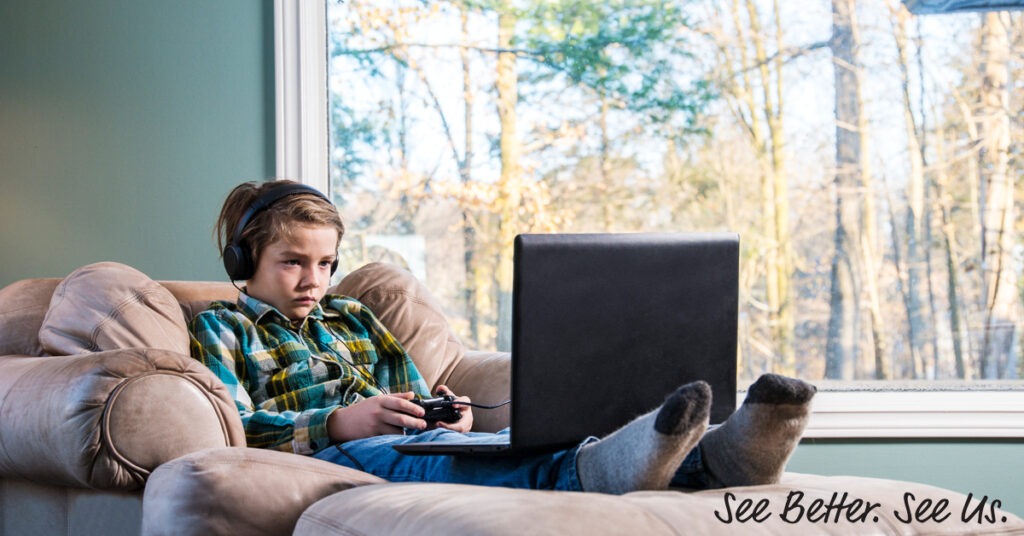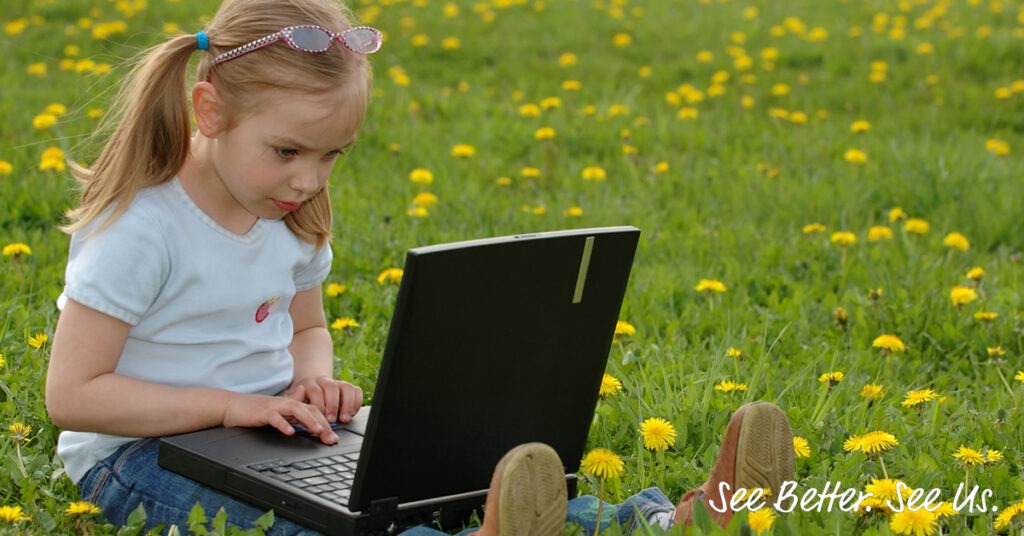Myopia – Is your child’s vision at risk?

Myopia, commonly known as short-sightedness or near-sightedness, is increasing at an alarming rate worldwide, doubling in children over the course of a single generation.
What is myopia and why the rise?
Typically diagnosed in children around the age of 10-12 years, Myopia is a common progressive eye condition where the eyeball grows too long, causing blurred distance vision. However, the age of onset is dropping, increasing the likelihood of a more extreme level of short-sightedness (high myopia) and higher eye disease risk in adulthood.
With the emergence of a new digital age, the reason for the significant increase in myopia is believed to be largely caused by environmental factors – resulting from modern lifestyles. As children are spending more time indoors than ever before, researchers believe that resulting low levels of outdoor activity, low levels of light exposure and prolonged time spent on close-up activities like computer, phone and television screens are affecting normal eye growth in childhood.

With symptoms including:
- Blurry vision when looking at distant objects
- The need to sit closer to the television, movie screen or front of the classroom
- The need to squint or partially close the eyelids to see clearly
- Excessive blinking
- Frequent rubbing of his or her eye
- Headaches caused by eyestrain
Regular eye tests from a young age enable optometrists to detect early signs of myopia before it fully develops. There are treatment options available to slow the rate of progression, with the aim of reducing its severity and protecting children from eye complications associated with high myopia in their adult years. With research showing that regular glasses alone do not aid in controlling the rate of myopia progression, below I have listed some techniques to assist you in helping look after your child’s growing eyes.
How can you help look after your child’s eyes?
- Get children to spend more than an hour and preferably two hours a day outdoors in their pre-school and primary school years.
- Be aware that the likelihood of developing myopia, particularly high myopia increases when one or both parents are myopic.
- Talk to their school teachers regarding their patterns of learning and concentration in the classroom.
- Book in an eye test.

Bulk Billing is available for all children and student comprehensive eye consultations, and we invite parents to book in all children and adolescents for an eye exam so we can help ensure the health of young eyes and assist in maintaining their well-being.
Beckenham Optometrist has been operating in Avalon for 20 years and our team is passionate about delivering the most comprehensive level of eye care to the community through a personalised and friendly approach. Beckenham Optometrist can be contacted on 9918 0616 and is located at 15 Old Barrenjoey Rd Avalon.
Your child doesn’t have to put up with blurry vision, and neither do you! See us for a solution today!







